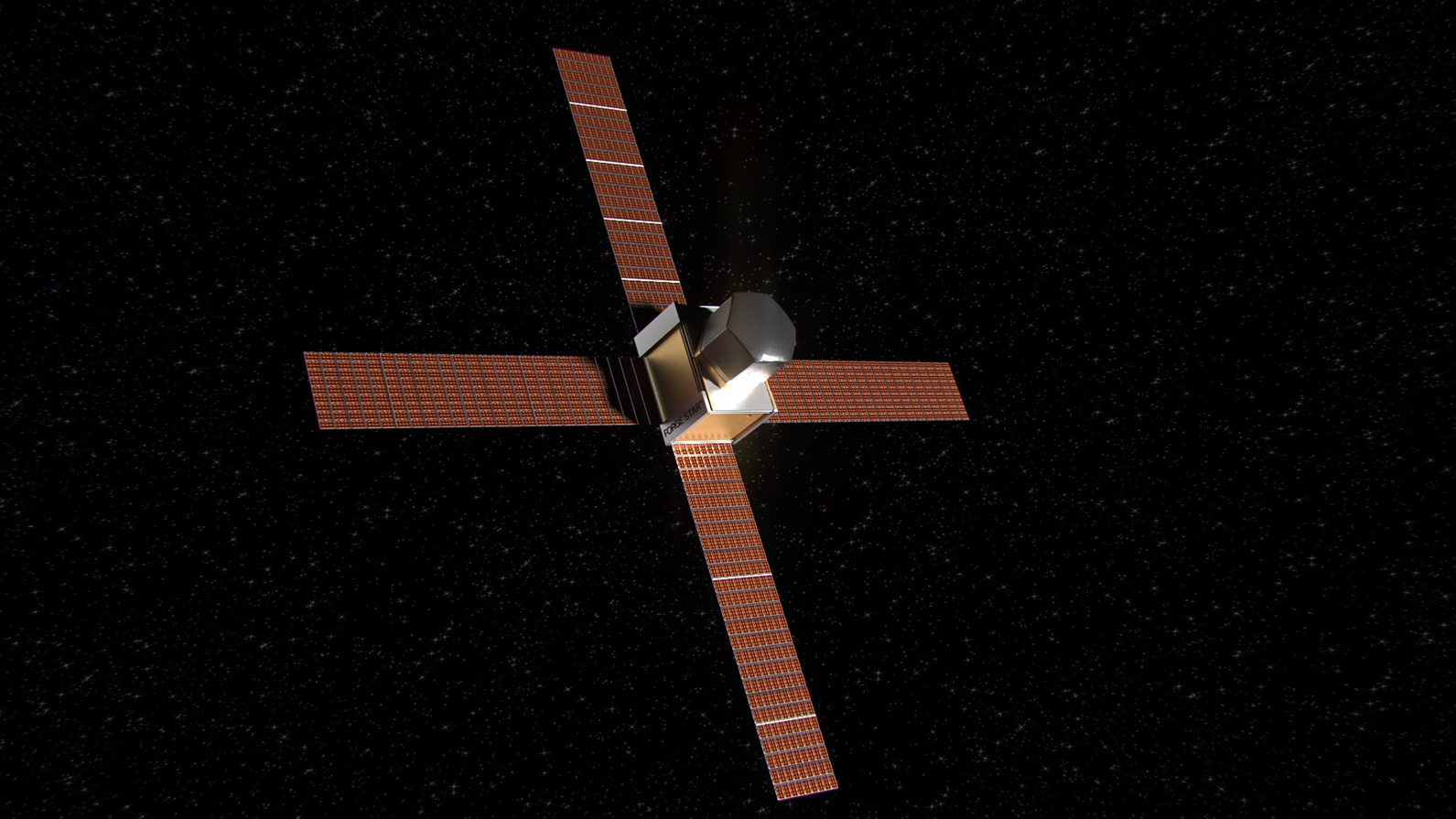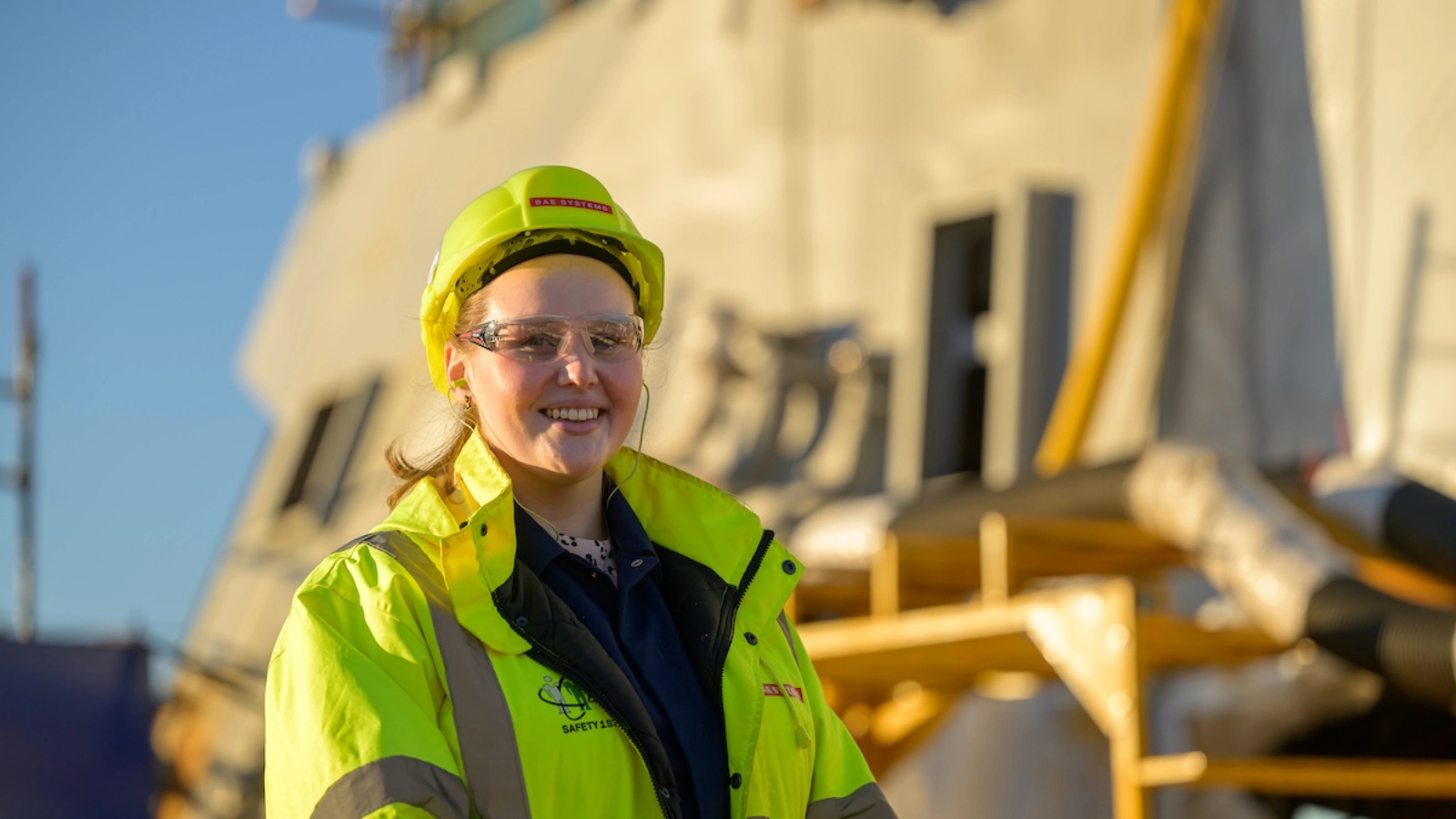HRH Prince of Wales meets UK champions of space sustainability

Above:
(left to right) Harriet Brettle, Head of Business Analysis, His Royal Highness the Prince of Wales, John Auburn, Managing Director, Astroscale Ltd.
Image Credit: David Fisher / Courtesy Astroscale
His Royal Highness gathered with leading industry representatives from OneWeb and the Satellite Applications Catapult, together with Minister for Science, George Freeman MP and Paul Bate, CEO of the UK Space Agency.
The group toured the ELSA-d Mission Control Centre and met with a group of young engineers from Astroscale who are breaking new ground to provide a solution to the growing problem of space debris, an issue that puts critical satellite infrastructure and astronauts based on the International Space Station (ISS) at serious risk.
“We were delighted to meet with HRH Prince of Wales, industry and government leaders to discuss how we might envision the space environment as an extension of Earth’s environment – an essential asset that all space actors must utilise safely to ensure we maintain critical space-based national infrastructure and satellite services including monitoring climate change,” said John Auburn, Managing Director of Astroscale Ltd. “We need to act now to protect the space environment for governments, global industry, society and for future generations.”
His Royal Highness, Prince of Wales, commented during the visit: “While we’re making rather a mess of this planet, it might be useful to have an environmental management agreement for space.”

Above:
(left to right) John Auburn, Managing Director, Astroscale Ltd. and HRH the Prince of Wales.
Image Credit: David Fisher / Courtesy Astroscale
Astroscale launched the first end-to-end demonstration mission to remove debris from space in March 2021. The ELSA-d mission, designed to test the technology and capabilities needed to remove a defunct satellite from space, is operated in the UK from the National In-Orbit Servicing Control Centre, a specialist facility developed by Astroscale, in partnership with the Satellite Applications Catapult and funded by UK Research & Innovation.
“This sounds like science fiction but it’s really happening up in space right now.” said Auburn. “His Royal Highness met our team of expert engineers who, as part of the ELSA-d mission, are in the middle of commanding two spacecraft, a servicer and a client satellite that they’re preparing to capture in the coming weeks.
The European Space Agency (ESA) estimates there are more than 9,800 tons of space junk, including an estimate 2,840 defunct satellites, that risk collision with 5,000 active satellites, or worse still the International Space Station (ISS).
“I’ll never forget listening to a talk by Astronaut Tim Peake – he said he was only ever really frightened by one major thing during his time in space: space debris colliding with the space station,” said Auburn. “Tim was not alone. We recently witnessed seven astronauts and cosmonauts who prepared for an emergency evacuation of the ISS after a Russian anti-missile test caused more debris in space.”
Others share Auburn’s sentiments. Neil Masterson, CEO of OneWeb talked of his enthusiasm for space sustainability stating: “We are honoured to have attended the HRH High Level Meeting on Space Sustainability,” said Masterson. “Space is a shared natural resource that can transform the way we live, work and connect.
With the increased global demand for launches of satellites that can provide data to support the environment, the economy and society, there are concerns around ensuring access to space can be provided in a sustainable way without risking in-orbit collisions. The UK’s National Space Strategy, unveiled last September, highlighted the importance of the sector addressing the issue of space sustainability as a strategic priority.

Above:
HRH the Prince of Wales with UK champions of space sustainability at Satellite Applications Catapult in Harwell, UK.
Image Credit: David Fisher / Courtesy Astroscale
Earlier in the year, industry-led group Space Scotland had acted as the catalyst for a major sectoral drive towards net zero ambitions through the Sustainable Space Challenges initiative, which called for environmental groups, schools and the local public to highlight environmental issues for space to solve. Outcomes and ideas were shared by international partners including ESA, the University of Texas at Austin, UK Space Agency, Astroscale and First Minister Nicola Sturgeon, calling for the industry to collaborate across all key stakeholders internally and to forge closer partnerships with other sectors, to ensure the UK’s burgeoning space industry develops in a sustainable fashion.
Advancing the technology to remove space debris creates other commercial opportunities that will strengthen the UK’s global position in the space sector, provide further opportunities to lead on space sustainability and could over time contribute towards Net Zero Space. The sector is known as in-orbit servicing and manufacturing and it is driven in the UK by a group which convenes regularly via the UKspace Trade Association. The UK’s space economy has a tremendous opportunity for growth in this sub-sector, highlighted in a report commissioned by the UK Space agency. It’s estimated the fast-growing in-orbit servicing sector will be worth $4 billion globally by 2030, with UK industry aiming to capture first-leader advantage and a $1billion share of the total market.
“We’re at a tipping point for in-orbit servicing and manufacturing in the UK,” said Stuart Martin, CEO of Satellite Applications Catapult. “We already have many capabilities developing at pace within Airbus, SSTL, Astroscale, D-Orbit, ClearSpace and many more. For us to accelerate capability and commercial growth, we need strong partnerships between industry, academia and government, and effective international alliances will be critical.”

Above:
HRH the Prince of Wales at the ELSA-d Mission Control Centre.
Image Credit: David Fisher / Courtesy Astroscale
Mark Boggett, CEO of Seraphim Space (Manager) LLP, commented: “The long-term sustainable health of the space sector is becoming ever more important with tens of thousands of satellite launches planned in the coming years. His Royal Highness is right to acknowledge that space debris mitigation and removal will become imperative to ensure the industry remains safe and sustainable. I am, therefore, thrilled that our portfolio company Astroscale has been recognised by Prince Charles, The UK Space Agency and UK Government for its transformational capability to offer on-orbit services used to inspect, transport, remove and extend the life of satellites in space to provide assurance and continuation of service for customers. Astroscale is just one of three of our portfolio companies, including LeoLabs and D-Orbit, using different transformative technologies to help address the mitigation of space debris.
“Leo Labs provides the mapping service for space by deploying a network of ground-based antennas capable of detecting an object as small as 2cm as far as 1,000km away. By mapping the skies in real-time and monitoring thousands more objects than existing government-operated systems, LeoLabs has become the ‘air traffic control system for Space that every rocket launch and every satellite will rely upon to operate safely, preventing potential cataclysmic collisions between satellites and ‘space junk’.
"Meanwhile, D-Orbit, which just announced plans to go public via a $1.4billion SPAC transaction, tackles space debris in another way. They use their fleet of space taxis, known as 'ION' satellite carriers, to perform in-space logistics such as towing satellites into their orbital locations and removing broken satellites. Together, these three companies highlight the various challenges, opportunities and investment solutions that the space sector offers and the collaborative approach needed between public and private companies to ensure we make space commercialisation as sustainable as possible.”














